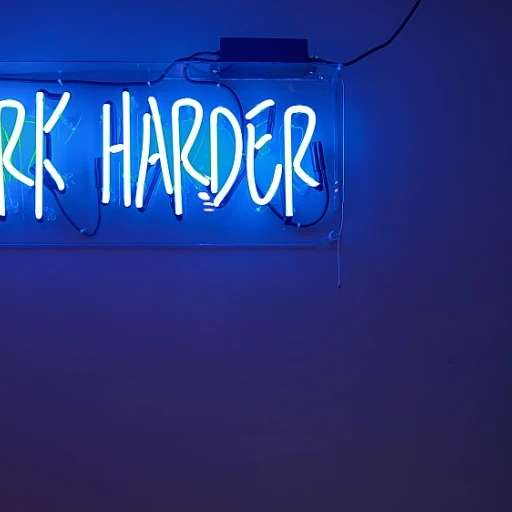What Does DEI Stand for and Why It Matters
In today's ever-evolving business landscape, understanding diversity, equity, and inclusion (DEI) is pivotal. DEI is more than just a buzzword; it's a critical element that defines modern workplace culture and ethos. But what exactly does DEI stand for, and why is it capturing so much attention in boardrooms across the globe?
The Essence of DEI in the Corporate World
Diversity, equity, and inclusion are three interrelated components that aim to build a more dynamic, innovative, and equitable workplace. Diversity refers to the presence of differences within a given setting, including race, gender, age, sexual orientation, and other dimensions. Equity focuses on fairness and justice in processes and policies, ensuring equal opportunities for all employees. Inclusion, on the other hand, emphasizes a sense of belonging, ensuring that individuals feel valued and integrated into the company's culture.
Why DEI Matters
Implementing DEI principles is key for businesses striving to foster an inclusive environment where every team member can thrive. Research has consistently shown that organizations prioritizing DEI initiatives tend to outperform their peers in profitability and productivity. These initiatives are essential for attracting top talent, enhancing employee satisfaction, and driving innovation.
For a more comprehensive understanding of what DEI stands for in today's workplace, consider delving deeper into its core principles and implications. Explore the significance of DEI to uncover how it can lead to transformative changes within your organization.
The Role of DEI in Modern Organizations
Integrating DEI into Organizational Practices
In today's dynamic business landscape, organizations are increasingly realizing the importance of embedding Diversity, Equity, and Inclusion (DEI) into their core practices. The role of DEI goes beyond mere representation; it becomes a pivotal framework that influences the way business strategies are developed and executed.
One of the key areas where DEI plays a vital role is in fostering a culture of collaboration and innovation. By bringing together diverse viewpoints, organizations can benefit from a broader range of ideas and perspectives, which often lead to groundbreaking solutions and enhanced decision-making processes. In essence, DEI fuels creativity and encourages problem-solving by promoting a space where all voices are heard and respected.
Moreover, DEI initiatives have a profound impact on employee satisfaction and retention. When employees feel valued and included, there is a notable increase in their engagement and loyalty to the organization. Engaged employees are not only more productive but also contribute to a positive work environment, which in turn attracts top talent and boosts the company's reputation in the industry.
Another significant aspect of DEI in organizations is its influence on customer relations. A diverse and inclusive workforce is better equipped to understand and cater to the needs of a varied client base, offering tailored products and services that resonate with different demographic groups. This customer-centric approach not only strengthens client relationships but also drives business growth and success.
To learn more about how DEI can influence leadership and management styles, consider exploring how to become the boss everyone wants to work for. Embracing DEI principles in leadership can pave the way for transformative progress and sustainable change, positioning an organization as an industry leader in innovation and inclusivity."}
Implementing DEI Initiatives: Challenges and Opportunities
Tackling DEI Implementation: Exciting Challenges and Opportunities
Navigating the implementation of Diversity, Equity, and Inclusion (DEI) initiatives in any organization is certainly an intriguing journey, filled with both challenges and opportunities. As companies increasingly prioritize inclusive cultures, understanding this dynamic is crucial.
One of the most pressing challenges is overcoming resistance to change. Employees and leadership alike may be hesitant to alter established practices, fearing disruption or discomfort. To counteract this, organizations must foster an environment where open conversations about diversity and inclusivity are encouraged and normalized.
Developing measurable DEI goals is another hurdle. It's essential for businesses to create specific, achievable, and time-sensitive objectives that align with their overall mission. This not only provides a roadmap for success but also holds the organization accountable for its progress.
Despite these challenges, the potential benefits of DEI initiatives can be transformative. In creating a more inclusive workplace, companies can unlock hidden organizational efficiency and spur innovation through diverse thinking and perspectives. The key is effectively translating commitment into action through strategic planning and leadership buy-in.
Organizations must also seize the opportunity to harness the power of employee engagement. By actively involving staff in DEI initiatives, companies can boost morale and foster a genuine sense of belonging. This, in turn, can lead to increased productivity and loyalty.
For businesses keen on navigating the DEI landscape, it may also be helpful to look for insights and strategies from experts, such as
unlocking hidden organizational efficiency, which can provide valuable guidance on implementing successful DEI initiatives.
In conclusion, while implementing DEI can certainly present its set of challenges, the opportunities for organizational growth and improved culture are too significant to ignore. The path forward requires a commitment to change, meticulous planning, and most importantly, an unwavering dedication to creating inclusive workplaces.
DEI Training and Employee Engagement
Effective DEI Training Techniques
To ensure a successful DEI program within an organization, effective training is crucial. Training needs to be comprehensive, engaging, and tailored to address the unique needs of each organization. Workshops, seminars, and online training modules are all popular methods to convey the principles of diversity, equity, and inclusion. Engaging storytelling and role-playing exercises can also help employees understand different perspectives and foster empathy among team members.
Building Employee Engagement through DEI
Employee buy-in is essential for the success of any DEI initiative. By encouraging open dialogue and creating safe spaces for discussion, organizations can engage employees in meaningful conversations around DEI topics. Encouraging participation in DEI committees or working groups allows everyone to contribute their ideas and foster a sense of ownership over these initiatives.
Continuous Learning and Development
DEI is an evolving field, and continuous learning is necessary to keep up with changes and new understandings. Companies should provide ongoing development opportunities for employees to stay informed and adjust their behaviors accordingly. This could include access to a DEI resource library, opportunities for attending external conferences, or inviting guest speakers from diverse backgrounds to share their experiences and knowledge.
Measuring Success and Adapting Strategies
To understand the impact of DEI training, organizations should implement mechanisms for measuring success. Employee surveys and feedback sessions can provide insights into how DEI initiatives are being perceived and their effectiveness in creating a more inclusive workplace. Organizations should remain flexible and ready to adapt strategies based on these insights to continuously improve their DEI efforts.
The Impact of DEI on Higher Education and Beyond
### Broadening Horizons: The Ripple Effect of DEI in Education and Beyond
The impact of diversity, equity, and inclusion (DEI) initiatives extends far beyond the walls of traditional workplaces; it also significantly influences the realm of higher education. As educational institutions increasingly prioritize DEI principles, they set a precedent that resonates throughout the broader community.
In higher education, fostering an inclusive environment is paramount as it cultivates a rich, diverse learning atmosphere. This not only benefits students by preparing them for a multicultural world but also equips them with better problem-solving and critical-thinking skills. When universities and colleges integrate DEI into their curriculums, they promote a culture of understanding and mutual respect among students from various backgrounds. This change in academic environments also paves the way for increased representation and equal opportunities, setting graduates up for success in their future endeavors.
Moreover, the benefits of DEI initiatives extend into societal institutions, influencing policy-making, community programs, and beyond. As individuals become more aware of the importance of diversity and inclusion, these values begin to infiltrate various aspects of community life, encouraging a more forward-thinking and innovative society.
Organizations that have embraced DEI are witnessing its advantages not just in internal operations but also in how they engage with the communities they serve. As outlined in
our discussion on the role of DEI in modern organizations, commitment to these principles often aligns organizations with the broader societal movements for equity and justice.
Ultimately, the transformative power of DEI, if harnessed effectively, can create lasting change that leads to more inclusive societies worldwide. As this chapter illustrates, the journey towards a more diverse, equitable, and inclusive future begins with education and extends beyond any single field or sector.
Frequently Asked Questions About DEI
Addressing Common DEI Queries
As you navigate the landscape of Diversity, Equity, and Inclusion (DEI), you might find yourself with some lingering questions. Let's delve into some of the Frequently Asked Questions that often arise during the implementation of DEI initiatives.
How Do We Start Implementing DEI Initiatives?
Starting with DEI, as elaborated in our earlier discussions, requires commitment from leadership and an understanding of the unique needs of your organization. It's essential to assess your current organizational culture and identify areas that need attention. Engage stakeholders at all levels and ensure you have a strong foundation by establishing clear goals and metrics to track progress. Remember that DEI is an ongoing journey, not a one-time effort.
What Are the Potential Challenges We Might Face?
Implementing DEI can come with its set of challenges, such as resistance to change, insufficient resources, or lack of understanding among team members. It's crucial to address these hurdles head-on by fostering an open dialogue, providing necessary resources and training, and maintaining a flexible approach to adjust strategies as needed.
What Are Some Effective Strategies for DEI Training?
DEI training can significantly boost awareness and engagement within the workplace. Tailoring training programs to suit your organization’s specific needs is critical. Interactive workshops, continuous learning opportunities, and fostering an environment where employees feel safe to express themselves contribute to a more inclusive atmosphere.
How Does DEI Affect Workplace Engagement?
DEI initiatives positively impact employee engagement by fostering a sense of belonging and recognition. When employees feel valued and included, they are likely to be more productive and committed to their work. This has been discussed previously where we explored the correlation between DEI and employee motivation.
How Is DEI Relevant to the Education Sector?
Beyond the workplace, DEI plays a vital role in shaping educational environments. By promoting diverse perspectives and inclusive practices, institutions prepare students to thrive in a multicultural and interconnected world. Institutions are increasingly recognizing the importance of DEI in developing critical thinking and fostering innovation among students.
By addressing these common questions, we hope to demystify some aspects of DEI and support you in building robust, inclusive workplaces. Remember, the path to inclusion is ongoing and evolving, demanding continuous effort and reflection.














